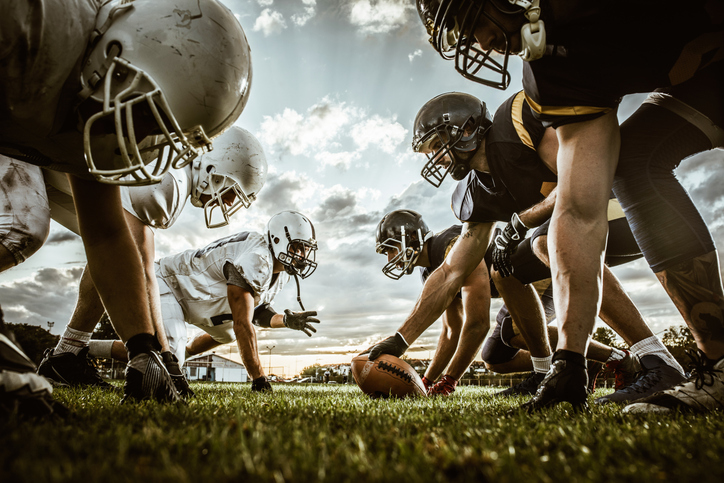
Red leaves speckle the ground, bulging pumpkins decorate doorsteps, and the smell of tailgate parties wafts through the crisp air. I love this time of year, the time between summer and winter. While most call it “fall” and two-finger tea-sippers insist on “autumn,” there really is no debate… it’s “football season.”
My team’s schedule has been on the calendar since it came out last winter. I rarely watch TV, but this time of year, that’s where you’ll find me Saturday come game time. What is it about football? It certainly pairs well with everything fall. Maybe it’s the competition and the rivalries. Perhaps there’s also something with the machismo of a slightly more-civilized version of gladiators fightin’ it out on the gridiron.
So it’s somewhat startling-not-startling when long-time NFL quarterbacks Brett Favre and Tommy Kramer announced a few days ago their Parkinson’s and dementia diagnoses. The Alzheimer’s Association outlines the connection between repeated head trauma and dementia. And it shouldn’t be a secret that 345 of 376 NFL players whose brains were examined after death were found to have chronic traumatic encephalopathy (CTE, a type of dementia), while 0 of 163 non-football-players in a recent study had it.
Are the personality changes, memory loss, depression, thoughts of self-harm, mood swings, aggressive behavior, and paranoia often experienced in CTE “worth it”? Is football more justifiable entertainment than gladiators because CTE dementia claims its victims over years, not minutes? Is a 25% reduction in concussions from the NFL’s work on helmet innovation and rule changes sufficient? Is creating a football program at my local high school or college ethically worth the enrollment bump? How will I respond to a first grader who wants to sign up to bang heads with other kids?
I don’t have clear answers to these tough questions. But I do know that when I reach for the remote Saturday, there’ll be a different rivalry playing. This time, I’ll see the player under the helmet: a guy who can squat 800 pounds but whose brain is just as fragile as a little girl’s, his 45-year-old future self struggling with dementia, his family recognizing the verdict. In the game of Football vs. Brain Health, there’s only one winner. That’s quite a rivalry. Who am I cheering for?
Curt Gritters, RN, BSN, MBA
Director, Dementia Institute
If you’re struggling to understand the dementia diagnosis of a loved one, we can help. The Dementia Institute’s Personal Consultations and Caregiver Classes are designed to educate and empower at-home caregivers, family, and friends to create meaningful connections and provide engaging care.